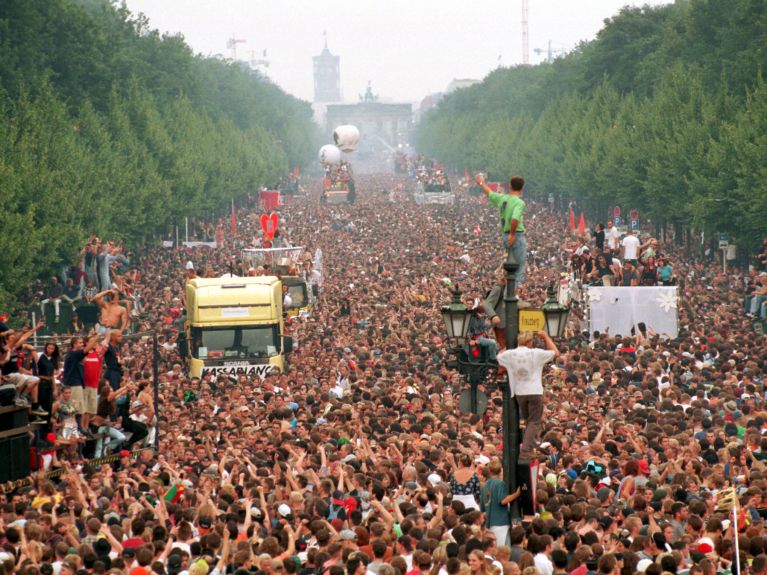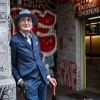Club culture revolution
In the years after the Fall of the Berlin Wall, Berlin became the cradle of electronic music. We discovered how that moment led to the blossoming of techno in Berlin.

Berlin’s club scene is famous around the world, with roots extending back into a time of radical change and renewal. The events of Fall of the Berlin Wall in 1989 were important for the entire world. They also marked the begin of a revolutionary era of electronic music and the club culture in Berlin.
Before the Wall fell: a divided city
Before the Fall of the Berlin Wall, Berlin was a divided city where the political situation had a profound influence on cultural life. In the West, subcultures like punk and new wave sprang up, while the East was under stricter state control. It restricted opportunities for alternative music and forms of expression, but this in turn gave rise to a huge underground scene which thrived out of sight.
The Fall of the Berlin Wall: a city comes to life
When the Wall fell in November 1989, Berlin became a city in transition overnight. All of a sudden there were huge areas of unused space and abandoned buildings which were taken over by artists, musicians and young people who were looking for new forms of expression. Former industrial buildings, cellars and warehouses were transformed into improvised clubs and events spaces. The opaque legal status of these spaces opened up previously unknown freedom and creativity.
The birth of Berlin techno
It was during this period that the Berlin music scene discovered techno, a new style of music from Detroit. The repetitive mechanical sounds were the perfect fit for the city’s raw, post-industrial atmosphere. The Berlin club scene became a symbol of this new freedom and breaking out into a new future where old borders no longer mattered. In this regard, techno was not just a musical phenomenon, but a social phenomenon, too. It stood for tolerance, openness and alternative lifestyles. Clubs like Tresor (“vault” in German), which was set up in 1991 in a former bank on Leipziger Platz, became pilgrimage sites for techno-lovers. Tresor’s founder, Dimitri Hegemann, played central role in introducing Detroit techno to Berlin.
Lasting influence on global club culture
The influence of Berlin techno extends far beyond Germany’s borders. During the 1990s the clubs laid the foundations for a global movement which still thrives today. In 2024, Berlin techno was recognised as part of Germany’s intangible cultural heritage.


